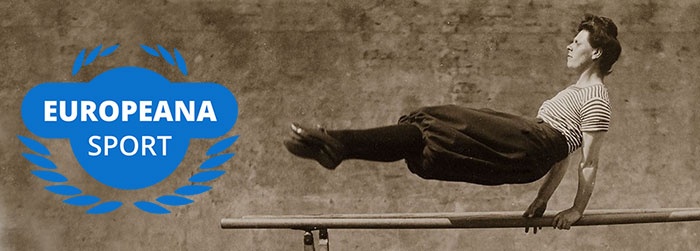Exploring the archives of Commonwealth Games Scotland
In August 1930, the first British Empire Games was held in Hamilton, Canada.
It featured teams from 11 nations who competed in six sports (athletics, bowls, boxing, rowing, swimming and wrestling). Scotland sent a team of 19 athletes and won two gold medals in athletics and boxing.
In 2022, the 22nd staging of the competition, now called the Commonwealth Games, will be held in Birmingham, England. Today it is a major international multi-sport event for members of the Commonwealth, with 72 nations participating in next year's competition.
This year marks the 90th anniversary of the foundation of Commonwealth Games Scotland.
The University of Stirling holds its archives, which tell the story of almost a century of international sporting participation and achievement. The core records of the organisation are enhanced by related collections of personal memorabilia from athletes and administrators who participated in the Games.
The Commonwealth Games has a unique place in the Scottish sporting calendar.
For athletes in many sports, it is the only chance to represent their country at a major competition (as at many other events, including the Olympics, Scotland forms part of the team representing Great Britain). For others, it may also provide the highest level of competition they reach – a unique opportunity to challenge themselves against a selection of the best athletes in the world.
The United Kingdom sends 7 teams to the Games (England, Scotland, Wales, Northern Ireland, Isle of Man, Jersey and Guernsey); other European participants are teams from Cyprus, Malta and Gibraltar.
The archive documents the experiences and achievements of our Scottish teams.
In the early years of the competition, one of the main challenges faced was the gruelling travel required to reach events held in Canada, Australia and New Zealand.
The archive includes a fascinating photograph album created by a team member in 1950 which documents the month-long journey by ocean liner to Auckland, New Zealand. The challenges of training on board ship are recorded as boxers, runners and even swimmers attempted to keep fit on deck! In the photograph below, Scottish boxer Hugh Riley trains on board the SS Tamora en route to the 1950 Commonwealth Games in Auckland, New Zealand. Riley went on to win gold in the Flyweight competition.
Scotland had to wait until 1970 to be selected as the host nation for competition. Edinburgh was chosen at the venue that year (and would go on to host the competition again in 1986). You can read more about the long road to hosting the Games on the University of Stirling's archives blog.
The Games returned to Scotland in 2014 with Glasgow hosting the event.
Then, we shared our collections with visitors to the city via Hosts and Champions, a pop-up exhibition telling the story of Scotland's participation in the Commonwealth Games.
Following the 2014 Games, we developed it into a touring display which has since visited 20 venues across Scotland, demonstrating the wide public interest in our sporting heritage. The University Archives continues to work closely with Commonwealth Games Scotland to collect and promote their history and heritage. We look forward to adding another chapter to the story next year at Birmingham 2022.
Share your sport story
Can you help us to tell the story of sport in Europe in the past and the present?
We invite you to tell us about your sport experiences through objects like photographs, memorabilia, equipment or prizes.

